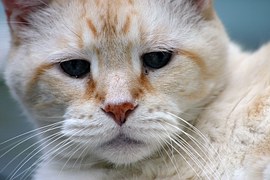Risk Factors for Development of Chronic Kidney Disease in Cats

Identification of risk factors for development of chronic kidney disease (CKD) in cats may aid in its earlier detection.
Evaluation of clinical and questionnaire data will identify risk factors for development of azotemic CKD in cats.
One hundred and forty-eight client-owned geriatric (>9 years) cats were evaluated.
Cats were recruited into the study and followed longitudinally for a variable time. Owners were asked to complete a questionnaire regarding their pet at enrollment. Additional data regarding dental disease were obtained when available by development of a dental categorization system. Variables were explored in univariable and multivariable Cox regression models.
In the final multivariable Cox regression model, annual/frequent vaccination (P value, .003; hazard ratio, 5.68; 95% confidence interval, 1.83–17.64), moderate dental disease (P value, .008; hazard ratio, 13.83; 95% confidence interval, 2.01–94.99), and severe dental disease (P value, .001; hazard ratio, 35.35; 95% confidence interval, 4.31–289.73) predicted development of azotemic CKD.
The study suggests independent associations between both vaccination frequency and severity of dental disease and development of CKD. Further studies to explore the pathophysiological mechanism of renal injury for these risk factors are warranted.
Click here to be directed to the study in the Journal of Veterinary Internal Medicine.

